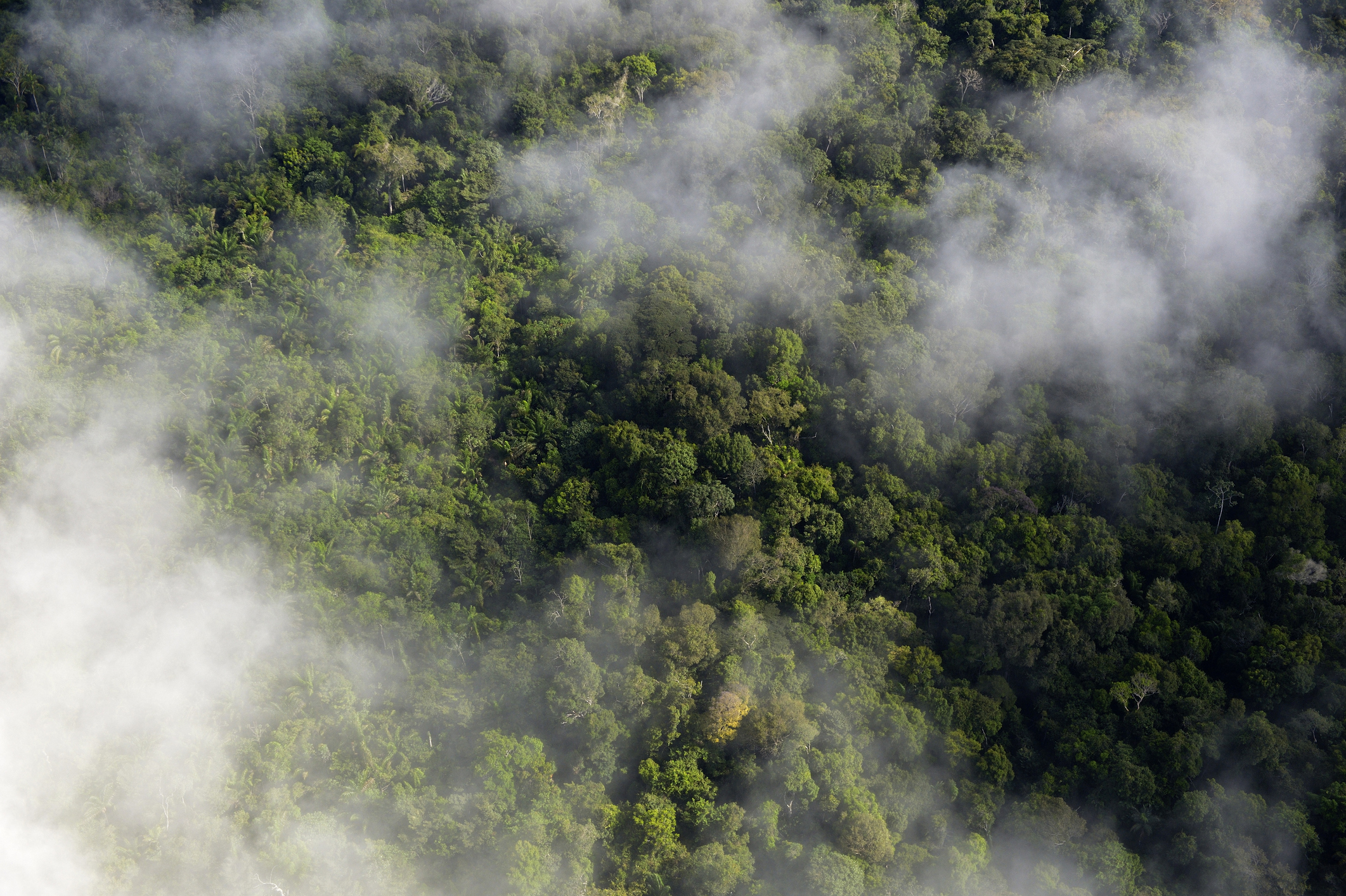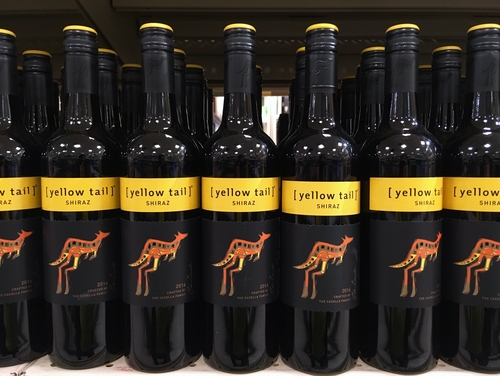Business Is Facing Up to the Risks of Destroying the Natural World
Companies from around the globe have volunteered to report their impact on nature
Hundreds of businesses have volunteered to measure and report their impact on the natural world, as they recognise the growing risks to their own operations from environmental degradation, including a denuded Amazon rainforest and dying coral reefs.
While many businesses are struggling to meet coming requirements to report their climate impact, more than 300 banks and companies are pledging to go much further. Early movers from across sectors and countries have promised to regularly publish nature-impact information as set out by the Taskforce on Nature-Related Financial Disclosures, or TNFD, a United Nations-backed initiative.
The first adopters represent $4 trillion in market capitalisation and around $14 trillion in assets under management. They include seven of the world’s 29 globally systemic banks, Japanese investor SoftBank, Norway’s sovereign-wealth fund, Gucci parent Kering, miner Anglo American and pharmaceutical majors GSK, AstraZeneca and Novo Nordisk.

Take-up by sector leaders should encourage peers to accelerate their efforts, said Tony Goldner, executive director of the TNFD. The framework is aligned to the Kunming-Montreal Global Biodiversity Framework agreed to in 2022 by nearly 200 countries. It recommends disclosures in governance, strategy, risk and impact management, as well as sector-specific metrics and targets for reducing impact.
Biodiversity impact is both a new type of risk and a new opportunity, said Valentin Alfaya, sustainability director at Spanish-listed infrastructure group Ferrovial, one of the first movers. “As a consequence of the implementation of the TNFD and our own natural capital assessment program, sometimes investments are going to be left aside,” Alfaya said.
“When you are interacting with those protected areas that are very relevant in terms of ecological value…it’s really risky for the company, not just in terms of reputation but also in terms of operations and even finance,” he said.
Using the framework will guide investment and help integrate nature into financial decision making, said Marisa Drew, chief sustainability officer at lender Standard Chartered. The move is a “significant opportunity for us to facilitate financial flows toward nature-positive outcomes,” Drew said.

Gauging impact is central to business decisions and managing risk, said Jennifer Motles, chief sustainability officer at tobacco giant Philip Morris International. “The TNFD recommendations and guidance will support us as we continue to focus on nature-related dependencies, impacts, risks, and opportunities,” Motles said.
The ramp-up in disclosure comes amid heightened awareness of the threat posed to the world by such natural degradation. The top four medium-term risks are all environmental, according to the World Economic Forum’s global risk report published earlier this month. They include extreme weather events, critical changes to the Earth’s systems, a collapse of the ecosystem and natural-resource shortages. “The collective ability to adapt to these impacts may be overwhelmed,” the report warns.
The World Bank estimates that the global economy could lose $2.7 trillion by 2030—which would mean a 10% drop, on average, in the economic output produced across all nations—if certain at-risk ecosystems collapse, such as fisheries or pollination by bees.
Adoption of the TNFD is “a clear signal that investors, lenders, insurers and companies are recognising that their business models and portfolios are highly dependent on both nature and climate,” the taskforce’s co-chair, David Craig, said. Natural risk should be treated both as a strategic risk and an investment opportunity, Craig said.
But reporting the damage done to the natural world isn’t the same as stopping it, said John Tobin-de la Puente, a professor of corporate sustainability at Cornell University. Disclosure is less about encouraging companies to change than it is about giving investors clear information on risk, he said.
Unlike carbon emissions, which can be assessed in terms of metric tons, there isn’t consensus on how to gauge environmental impact—whether, for example, in terms of protected species, general biodiversity, or a bundle of measures, said Tobin, a tropical ecologist and corporate lawyer by training. Some efforts have been made to create units of ecosystem impact, but for now, no universal metric exists, he said.
Alternatives to current business models will also need to be created, just as renewable energy has been developed to replace fossil fuels, Tobin said. “Will we get there at some point soon, before it’s too late for the biosphere?” he asked. “That question is still open.”
 Copyright 2020, Dow Jones & Company, Inc. All Rights Reserved Worldwide. LEARN MORE
Copyright 2020, Dow Jones & Company, Inc. All Rights Reserved Worldwide. LEARN MORE
This stylish family home combines a classic palette and finishes with a flexible floorplan
Just 55 minutes from Sydney, make this your creative getaway located in the majestic Hawkesbury region.
Impact investing is becoming more mainstream as larger, institutional asset owners drive more money into the sector, according to the nonprofit Global Impact Investing Network in New York.
In the GIIN’s State of the Market 2024 report, published late last month, researchers found that assets allocated to impact-investing strategies by repeat survey responders grew by a compound annual growth rate (CAGR) of 14% over the last five years.
These 71 responders to both the 2019 and 2024 surveys saw their total impact assets under management grow to US$249 billion this year from US$129 billion five years ago.
Medium- and large-size investors were largely responsible for the strong impact returns: Medium-size investors posted a median CAGR of 11% a year over the five-year period, and large-size investors posted a median CAGR of 14% a year.
Interestingly, the CAGR of assets held by small investors dropped by a median of 14% a year.
“When we drill down behind the compound annual growth of the assets that are being allocated to impact investing, it’s largely those larger investors that are actually driving it,” says Dean Hand, the GIIN’s chief research officer.
Overall, the GIIN surveyed 305 investors with a combined US$490 billion under management from 39 countries. Nearly three-quarters of the responders were investment managers, while 10% were foundations, and 3% were family offices. Development finance institutions, institutional asset owners, and companies represented most of the rest.
The majority of impact strategies are executed through private-equity, but public debt and equity have been the fastest-growing asset classes over the past five years, the report said. Public debt is growing at a CAGR of 32%, and public equity is growing at a CAGR of 19%. That compares to a CAGR of 17% for private equity and 7% for private debt.
According to the GIIN, the rise in public impact assets is being driven by larger investors, likely institutions.
Private equity has traditionally served as an ideal way to execute impact strategies, as it allows investors to select vehicles specifically designed to create a positive social or environmental impact by, for example, providing loans to smallholder farmers in Africa or by supporting fledging renewable energy technologies.
Future Returns: Preqin expects managers to rely on family offices, private banks, and individual investors for growth in the next six years
But today, institutional investors are looking across their portfolios—encompassing both private and public assets—to achieve their impact goals.
“Institutional asset owners are saying, ‘In the interests of our ultimate beneficiaries, we probably need to start driving these strategies across our assets,’” Hand says. Instead of carving out a dedicated impact strategy, these investors are taking “a holistic portfolio approach.”
An institutional manager may want to address issues such as climate change, healthcare costs, and local economic growth so it can support a better quality of life for its beneficiaries.
To achieve these goals, the manager could invest across a range of private debt, private equity, and real estate.
But the public markets offer opportunities, too. Using public debt, a manager could, for example, invest in green bonds, regional bank bonds, or healthcare social bonds. In public equity, it could invest in green-power storage technologies, minority-focused real-estate trusts, and in pharmaceutical and medical-care company stocks with the aim of influencing them to lower the costs of care, according to an example the GIIN lays out in a separate report on institutional strategies.
Influencing companies to act in the best interests of society and the environment is increasingly being done through such shareholder advocacy, either directly through ownership in individual stocks or through fund vehicles.
“They’re trying to move their portfolio companies to actually solving some of the challenges that exist,” Hand says.
Although the rate of growth in public strategies for impact is brisk, among survey respondents investments in public debt totaled only 12% of assets and just 7% in public equity. Private equity, however, grabs 43% of these investors’ assets.
Within private equity, Hand also discerns more evidence of maturity in the impact sector. That’s because more impact-oriented asset owners invest in mature and growth-stage companies, which are favored by larger asset owners that have more substantial assets to put to work.
The GIIN State of the Market report also found that impact asset owners are largely happy with both the financial performance and impact results of their holdings.
About three-quarters of those surveyed were seeking risk-adjusted, market-rate returns, although foundations were an exception as 68% sought below-market returns, the report said. Overall, 86% reported their investments were performing in line or above their expectations—even when their targets were not met—and 90% said the same for their impact returns.
Private-equity posted the strongest results, returning 17% on average, although that was less than the 19% targeted return. By contrast, public equity returned 11%, above a 10% target.
The fact some asset classes over performed and others underperformed, shows that “normal economic forces are at play in the market,” Hand says.
Although investors are satisfied with their impact performance, they are still dealing with a fragmented approach for measuring it, the report said. “Despite this, over two-thirds of investors are incorporating impact criteria into their investment governance documents, signalling a significant shift toward formalising impact considerations in decision-making processes,” it said.
Also, more investors are getting third-party verification of their results, which strengthens their accountability in the market.
“The satisfaction with performance is nice to see,” Hand says. “But we do need to see more about what’s happening in terms of investors being able to actually track both the impact performance in real terms as well as the financial performance in real terms.”
This stylish family home combines a classic palette and finishes with a flexible floorplan
Just 55 minutes from Sydney, make this your creative getaway located in the majestic Hawkesbury region.






















